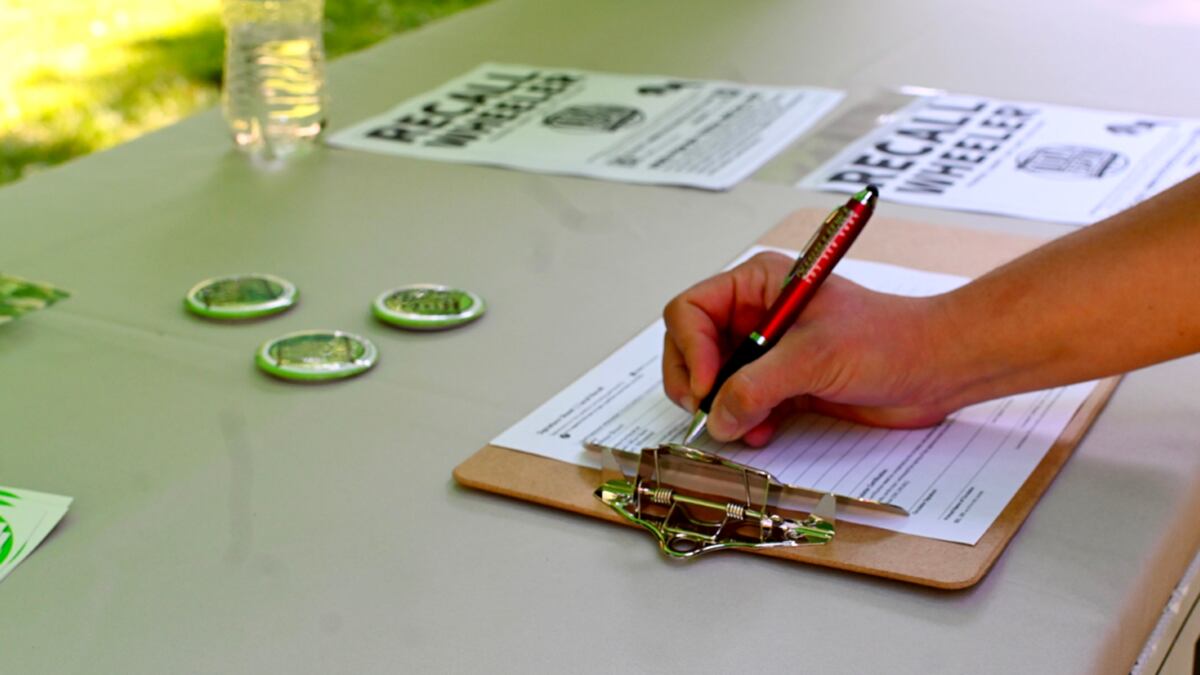As the campaign to recall Portland Mayor Ted Wheeler limps to its Oct. 6 deadline for signature gathering, it’s making one more attempt to stay alive, filing a federal legal challenge against the city after it denied a 90-day extension to the campaign’s signature collecting window on Sept. 24. The campaign requested the extension two days earlier, on Sept. 22, blaming a summer of heat waves and pandemic restrictions for chronically low signature numbers.
The campaign has collected just over 19,500 signatures. It needs 48,000 signatures to put the recall on the November ballot.
The campaign’s legal challenge, filed in U.S. District Court, was first reported by The Oregonian on Monday afternoon. The campaign shared the lawsuit with WW. The defendants are the city of Portland and the city’s auditor, Mary Hull Caballero.
The lawsuit alleges that the city imposing a 90-day window for collecting signatures, and its subsequent denial of a 90-day extension, violates the campaign’s First Amendment rights.
“Signature gathering for recall elections is core political speech under the First Amendment. The 90-day deadline contained in ORS 249.875(1) is void as applied under the First Amendment because of the great burden of obtaining adequate recall petition signatures, in only 90 days, during a public health emergency and global pandemic, during historic heat conditions and during a historic economic contraction that inhibits political contributions such as those that would enable swift petition signature gathering,” the lawsuit reads.
Representing the campaign in the lawsuit are attorneys Alan Kessler and Juan Chavez. Kessler co-founded the political action committee that launched the campaign.
The lawsuit challenges the 90-day allotment for gathering signatures for recall efforts. ”We believe that the state constitution is clear,” Chavez said in a statement. “Recalls are a right afforded citizens, and the Legislature may not put onerous restrictions on that right—especially in the middle of a pandemic.”
Kessler said in a statement: “The Oregon Constitution’s intent is plain.... The drafters could have instituted a time limit, but they did not. It is not appropriate for city or state officials to put arbitrary limitations on our constitutional right to recall them.”
In the city’s denial of the extension in September, city elections officer Louise Hansen replied that the harshest of the heat waves occurred prior to the campaign’s signature-collecting window, and that social distancing requirements were not in place and large gatherings were not banned during the campaign’s 90-day window.
Chavez says the campaign is also seeking a temporary restraining order against the city, which it has yet to receive a hearing date for.
Chavez tells WW, “Our argument, and this has been accepted by at least one federal court here in Oregon as well as in other jurisdictions, is that during a pandemic or plague, that timeline interferes with our First Amendment rights to petition, seek redress, all of that.”
Chavez is referring to a fall 2020 decision in which the U.S. District Court ruled that a ballot measure campaign was hindered by the state’s COVID-19 protocols and that the 90-day window was unconstitutional in light of those circumstances. The court ordered the secretary of state to allow the measure on the ballot without the full number of signatures required. (The Oregon Supreme Court later blocked that decision.)
The City Attorney’s Office did not respond to WW’s request for comment.
Correction: Due to an editor’s error, this story initially misstated the jurisdiction in which the campaign filed its lawsuit.

